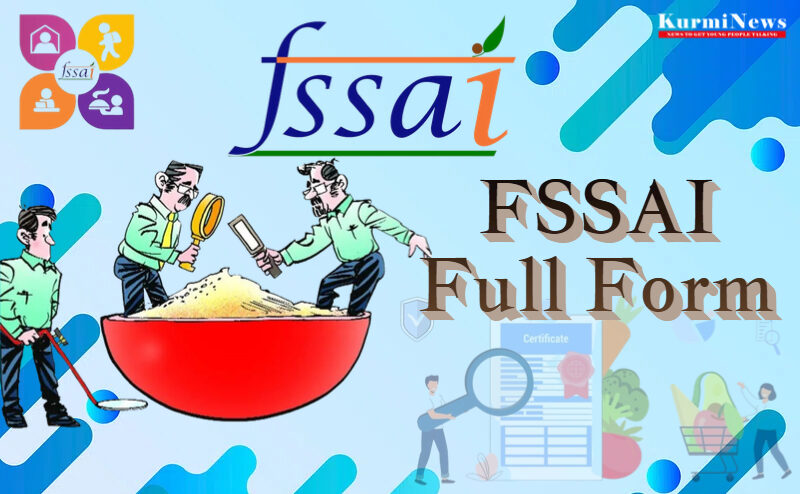FSSAI Full Form: FSSAI, which stands for the Food Safety and Standards Authority of India, is the primary regulatory body tasked with ensuring food safety, quality, and ethics across the nation. In India, the concept of ‘Food Safety’ is more of a systemic approach rather than merely a technological one. It revolves around guaranteeing that the food distributed, sold, and consumed by the public is safe for consumption. Despite numerous regulations governing food safety, understanding the complete landscape can be challenging.
The Indian Government’s Role in Food Safety: FSSAI Full Form
The Food Safety and Standards Authority of India (FSSAI) is the apex agency responsible for regulating and promoting food safety and quality in India. It operates under a three-tiered hierarchy, reporting to the Ministry of Health and Family Welfare. Alongside FSSAI, State Regulatory Bodies (SRBs) play a crucial role in regulating products within individual states.
FSSAI Full Form: What is FSSAI?
FSSAI aims to establish a comprehensive food security framework ensuring food safety from production to sale, thereby controlling foodborne diseases. Established on July 1, 2011, through an Act of Parliament, FSSAI is mandated to set food standards, ensure hygiene in food supply, monitor food processing standards, and regulate food marketing and sales.FSSAI Full Form
Additionally, FSSAI is responsible for collecting, evaluating, and utilizing data on food safety, standardizing catering practices, disseminating food safety information, and regulating food research and technology.
Framing Food Standards Laws: FSSAI Full Form
India’s approach to food safety differs from that of developed countries, evident in its regulations and standards. Key points include mandatory multilingual labeling for food products, nutritional value declaration, and standardized codes limiting fat, sugar, and salt content. Food processing plants undergo inspection every three years, and FSSAI prescribes standards for packaging and labeling.
Accreditation of Laboratories: FSSAI Full Form
Under the Food Safety and Standards Act of 2006, the FSSAI is authorized to establish standards for various aspects of food production, processing, storage, distribution, and import. The FSSAI website states, “For food standards, FSSAI (FSSAI Full Form) issues standards in respect of most commodities regulated by other acts of the Government.” These standards delineate procedures ensuring the safety, quality, and suitability of food products for human consumption.
FSSAI’s Role in Setting Standards:
FSSAI plays a crucial role in setting standards for food safety, leveraging scientific and technological advancements. It involves identifying hazards, assessing potential deviations from standards, establishing parameters for risk assessment, evaluating threat probabilities, and assigning liability for hazards.
Technical Assistance to the Central Government:
The Food Safety Bill of 2013, drafted by the FSSAI, underwent rigorous scrutiny in the Indian Parliament before being enacted on May 31, 2013. The bill’s implementation rests on four pillars aimed at enforcing guidelines and regulations to achieve its primary objectives. This legislation is regarded as one of the most comprehensive food safety laws (FSSAI Full Form) globally, reflecting India’s commitment to enhancing food safety management.
Conclusion:
The Indian government plays a pivotal role in regulating food and drugs (FSSAI Full Form), ensuring public health and safety. The Department of Health and Family Welfare, along with the Ministry of Health and Family Welfare, formulates national policies and rules governing the food sector. These entities are tasked with crafting laws to regulate food safety and safeguarding the health of the Indian population while ensuring the integrity of their food sources.
FAQs about FSSAI Full Form
What is FSSAI and what does it do?
FSSAI, or the Food Safety and Standards Authority of India, is the primary regulatory body responsible for ensuring food safety, quality, and ethics across the nation. It sets food standards, monitors food processing, regulates food marketing, and collects data on food safety.
What is the role of FSSAI in setting food standards?
FSSAI plays a crucial role in setting standards for food safety by leveraging scientific advancements. It identifies hazards, assesses deviations from standards, establishes risk assessment parameters, and evaluates threat probabilities, thereby ensuring the safety and quality of food products.
How does FSSAI contribute to ensuring food safety in India?
FSSAI contributes to food safety in India by establishing a comprehensive food security framework from production to sale. It controls foodborne diseases, monitors food processing, and regulates food marketing and sales to ensure that food consumed by the public is safe and of high quality.
What are the key regulations and standards enforced by FSSAI?
FSSAI enforces regulations such as mandatory multilingual labeling, nutritional value declaration, and standardized codes limiting fat, sugar, and salt content in food products. It also prescribes standards for packaging and labeling and conducts regular inspections of food processing plants.
How does FSSAI collaborate with the Indian government to regulate food safety?
FSSAI operates under the Ministry of Health and Family Welfare and collaborates with State Regulatory Bodies to regulate food safety across the nation. It frames laws, drafts bills, and provides technical assistance to ensure the effective implementation of food safety regulations and standards.

